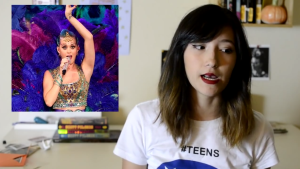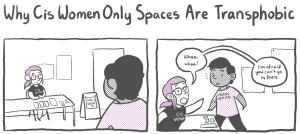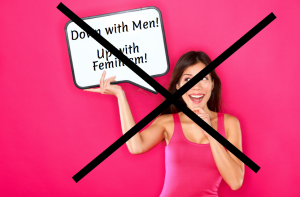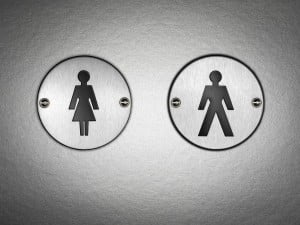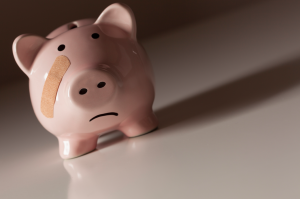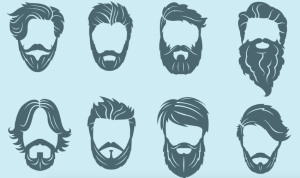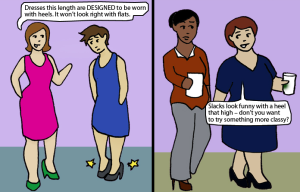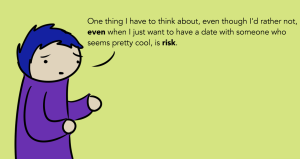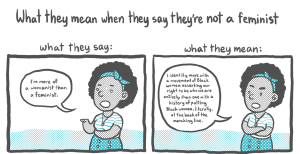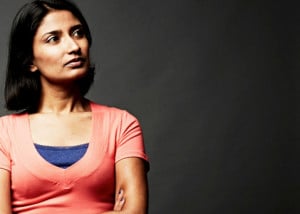
A person with arms crossed, looking off into the distance, seemingly frustrated. Source: Img Kid
A few years ago, a friend tried to tell me that it’s terrible when White people make comments about Indians and our brown skin, but it’s okay – funny even – when we, Indians, are the ones making the same jokes about dark-skinned Indians.
I guess she thought it was alright to belittle her own people.
As a dark-skinned Indian woman, that conversation kind of cracked the relationship between me and my friend.
Luckily, the friendship survived, but it reminded me of how horrific it was to be a kid and always have to listen to people laugh at jokes about darker skinned people like me.
Since that conversation with my friend, I haven’t been around any people who make such jokes, and I thought I was free from the hurt that comes with being exposed to them.
But a recent column written by an Indian actor made me think about all those jokes about dark-skinned people once again.
In this column, actor Twinkle Khanna humorously wrote about how Indians find everything so offensive.
She joked about how we even found Obama chewing gum at the Indian Republic Day parade offensive. And it’s true! The Indian news media (and then the social media) just couldn’t stop talking about it.
Khanna playfully suggests that we are too sensitive and need to develop a thick skin – but then, out of nowhere, her jokes grow vicious and she criticizes people’s sensitivity towards jokes about dark skin.
Jokes About Dark Skin Are Offensive – Period
At the risk of sounding exactly like the kind of person Khanna mentions in her article, I want to say that I find jokes about dark-skinned people offensive, just as I find rape jokes, racist jokes, sexist jokes, and jokes against fat people offensive.
In her piece, Khanna says:
“The jokes about dark skin offend us because deep down, some of us idiotically think that having dark skin is a shortcoming. Would we be as offended if jokes were made about having fair skin like, ‘You are so fair that you were thrown out of the Nirma washing powder commercial for being whiter than the washed shirt?’”
But Khanna is wrong.
People who get offended by jokes against dark-skinned people are not the ones who think being dark-skinned is a shortcoming.
I find jokes against dark skin oppressive and offensive – not because I think my dark skin is a shortcoming, but because society is unfair to dark-skinned people, because society says dark skin is a shortcoming and then it makes jokes about it.
These jokes make it acceptable to mock a certain skin color and therefore devalue a certain identity.
Jokes about dark skin contribute to oppression in many ways:
- These jokes say it is okay to make fun of somebody’s body;
- They exploit how dark skin is perceived by society; and
- They permit the perpetuation of how dark skin is perceived by society, and thus hinder any change.
There Is No Such Thing as Reverse Colorism
To answer Khanna’s question: Yes, we would be offended if jokes were made about fair-skinned people since jokes about both fair skin and dark skin are about shaming the way somebody’s body looks.
We would be offended by jokes about fair skin if having fair skin was looked down upon by the society we live in. There is a reason why jokes about fair skin don’t make the rounds.
Even if one were to tell a joke about fair skin, the intent and reasons will not be as same as the ones behind telling a joke about dark skin.
Jokes such as the one Khanna mentions in her article – skin so fair that you get thrown out of a washing powder commercial for being whiter than the white shirt – are not oppressive. Because in a colorist society, those jokes, if and when told, have the undertones of a compliment.
They don’t send out messages that fair-skinned people are ugly or that they should be ashamed about their skin color.
On the other hand, the reason why jokes against dark skin are offensive is because society labels dark skin as ugly and unattractive, and these jokes strengthen those labels by further shaming dark-skinned people.
I had a classmate in college who was light-skinned, and every time she wore white clothes and took pictures of herself against a white wall, she would come over to me and my friends and complain about how she wasn’t “visible” in the pictures.
Her complaint was a way of self-praising her fair skin, which is very different from saying a person is so dark that you can’t see them against a black chalkboard.
Jokes like those clearly promote colorism.
However, jokes on light skin are not examples of reverse colorism. There is no such thing as reverse-colorism just as there is no reverse racism or reverse sexism.
If an individual doesn’t prefer or like your light skin, that’s not oppression or discrimination. But if you were living in a society where formal or informal structures (state, family, or media, and so on) were critical of and oppressive about your light skin in any way, then that individual’s behavior towards you would be seen as contributing to the structure’s oppression towards you.
Fair Skin Privilege
For Khanna – who is among the most light-skinned actors in the Indian film industry – to say that people who get offended by jokes about dark skin are offended because they think that being dark skin is a shortcoming is absurd to say the least.
It is an attempt to trivialize and invalidate the experiences of dark-skinned people in a society that not only promotes light skin, but shames dark skin. Denying that dark-skin is looked down upon by society and media is hiding your own fair skin privilege.
Fair skin privilege arises from society monopolizing the standards of what is perceived as beautiful and what is demoted as ugly.
I can’t watch a TV show without advertisements about skin lightening creams telling me how what I don’t have is what is desirable and why I should aim for it.
Fair skin privilege is in watching those advertisements and not receiving the message that something as natural as their skin is ugly and undesirable. Fair-skin privilege is in watching fair-skinned people on TV all the time.
If you watch Indian television for too long, you’ll wonder if dark-skinned people even exist in this country because, most of the time, you won’t see them on TV.
Fair skin privilege is when being told “she’s so fair!” automatically equals beautiful. Because when people find a dark-skinned girl beautiful, their expression is usually, “She’s dark, but she is beautiful.”
For them, a dark girl who is beautiful has to be an exception.
‘Dusky’ Is Not a Compliment
When I point out that Indian popular media doesn’t have many dark-skinned faces, and definitely not in lead roles or as protagonists, I am contradicted by people telling me that we do have mainstream dark-skinned actors — Bipashu Basu, for example.
But what people don’t realize is that those actors are turned into “sex symbols.” They’re labeled “hot” or “sexy” and made to fill those roles because their dark skin is no longer referred to as dark skin, but as “dusky.”
And “dusky” has some degree of acceptance by people because it is seen as “exotic.” Dark doesn’t.
I’ve been called “dusky” by some people when they wanted to say something nice about my skin color. I appreciate their intent and understand their lack of better words, but I always make them know that I don’t take “dusky” as a compliment.
“Dusky” has always been – and will always be – a euphemism for dark. “Dusky” is used by people to refer to dark-skinned people whom they happen to find attractive.
The fact that one has to use a different word to describe the skin color of the person they find attractive shows that “dark” is often used as a disparaging remark.
Colorism Is Not Humor
I know of some dark-skinned people who are okay with being made fun of for their skin color, who joyfully take part in the delivery of the joke.
Their act of a “good sport” demands other dark-skinned people to be like them, to learn from them, to be as mature as them, and to simply have a sense of humor.
For me, it’s an act of dehumanizing yourself and fooling yourself to believe that it’s just a joke.
It’s fooling yourself to believe that it’s your thinking that is offensive and not society’s dehumanization of you.
In her article, Khanna is right about one thing though: There are people who think being dark-skinned is a shortcoming or that it is something to be ashamed of. And those are the people who tell those jokes.
I will continue to find jokes about dark skin offensive.
I will not laugh. I will not loosen up. I will not have a sense of humor for such jokes.
I will make a big deal of things that matter to me. Because colorism is not humor. It’s an act of humiliating somebody — an act that derives its “justification” from society’s shaming of dark skin.
A Few More Things
I have said it before, but I want to say this again. In India, the reason why colorism isn’t taken seriously is because it is not a race issue. Unfortunately, the issue of race doesn’t garner much attention unless it turns violent.
And lastly, to say that let’s stop making a big deal of this thing and instead let’s be concerned about that, is to say let’s all just look into one thing and ignore the other because it isn’t important.
I’ve heard people, often Westerners, tell me that I should not be talking about something as minor as skin color when there are real issues going in my poor, third world country – issues of dowry, rape, and sex trafficking.
Even Khanna, in her article, says, “We have people up in arms about jokes on homosexuality, but shouldn’t we be more offended that homosexuality is still considered a crime in India.”
I never understood the idea of comparing one issue with another.
How is pitting one issue against another going to solve either?
If enough people get agitated against homosexuality being a crime in India, will it then be okay to laugh at somebody’s sexuality? Because colorism in India is not a race issue, is it okay to have jokes about dark skin?
Do things need to turn violent for people to call it an issue?
***
Let’s just accept that we live in a world where there are all kinds of issues – physical violence, emotional abuse, sex trafficking, self-esteem issues, racism, sexist jokes, slavery, heightism, and many more.
Pitting one against the other will only make things difficult for us and everybody else.
To say that an issue is not really an issue because it doesn’t affect us is to deny our privilege.
I know that not all issues affect us equally, and that’s why some think it’s okay for us to not actively advocate for every issue. But sometimes we can simply be allies.
Can’t we?
[do_widget id=”text-101″]
R. Nithya is a Contributing Writer for Everyday Feminism and lives in New Delhi, India. She has a Bachelor’s in Journalism and a Master’s in Political Science and has worked as a reporter with an online political news and analysis magazine. Read her articles here. Visit her here or follow her on Twitter @rnithya26.
Search our 3000+ articles!
Read our articles about:
Our online racial justice training
Used by hundreds of universities, non-profits, and businesses.
Click to learn more






